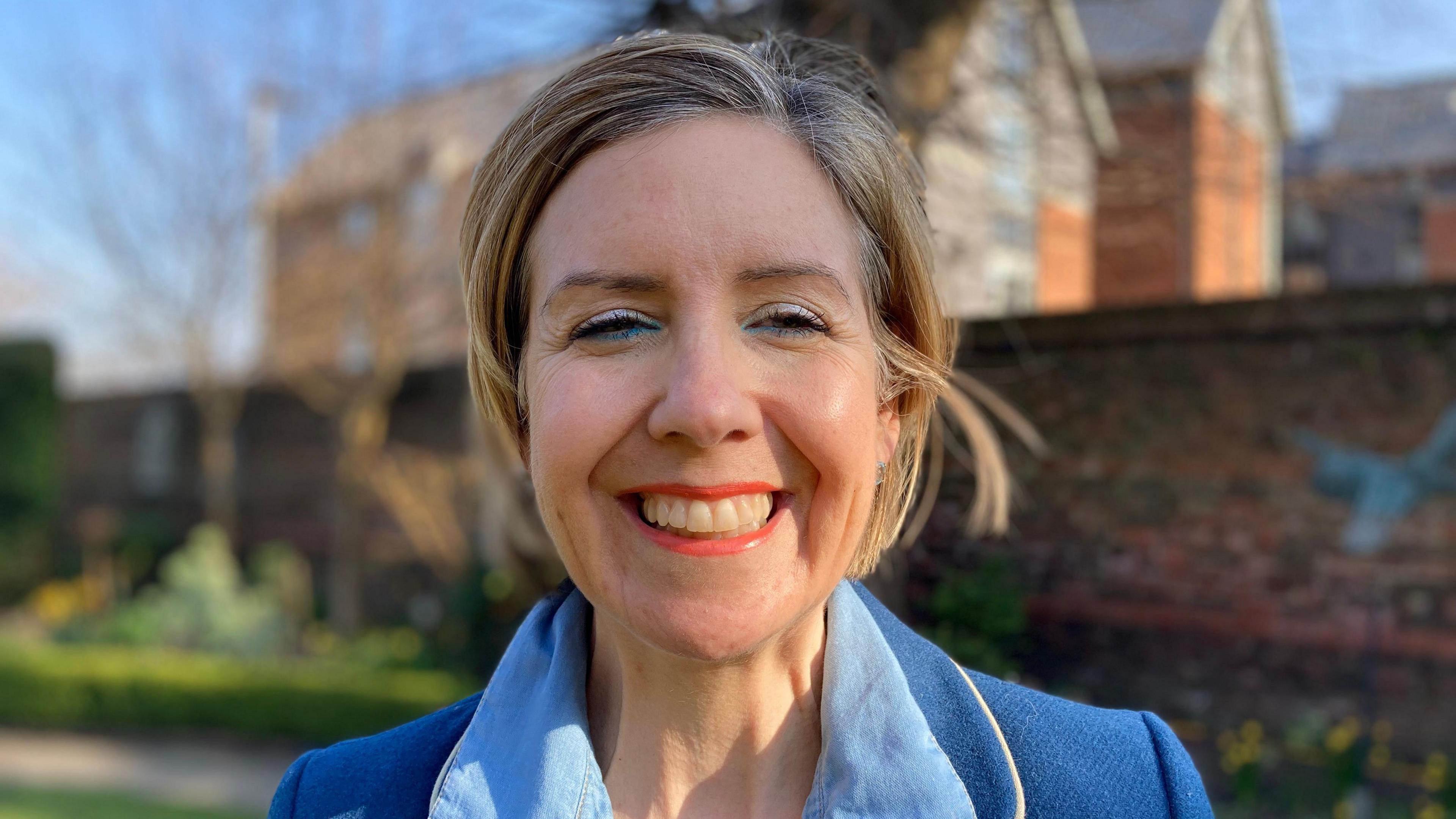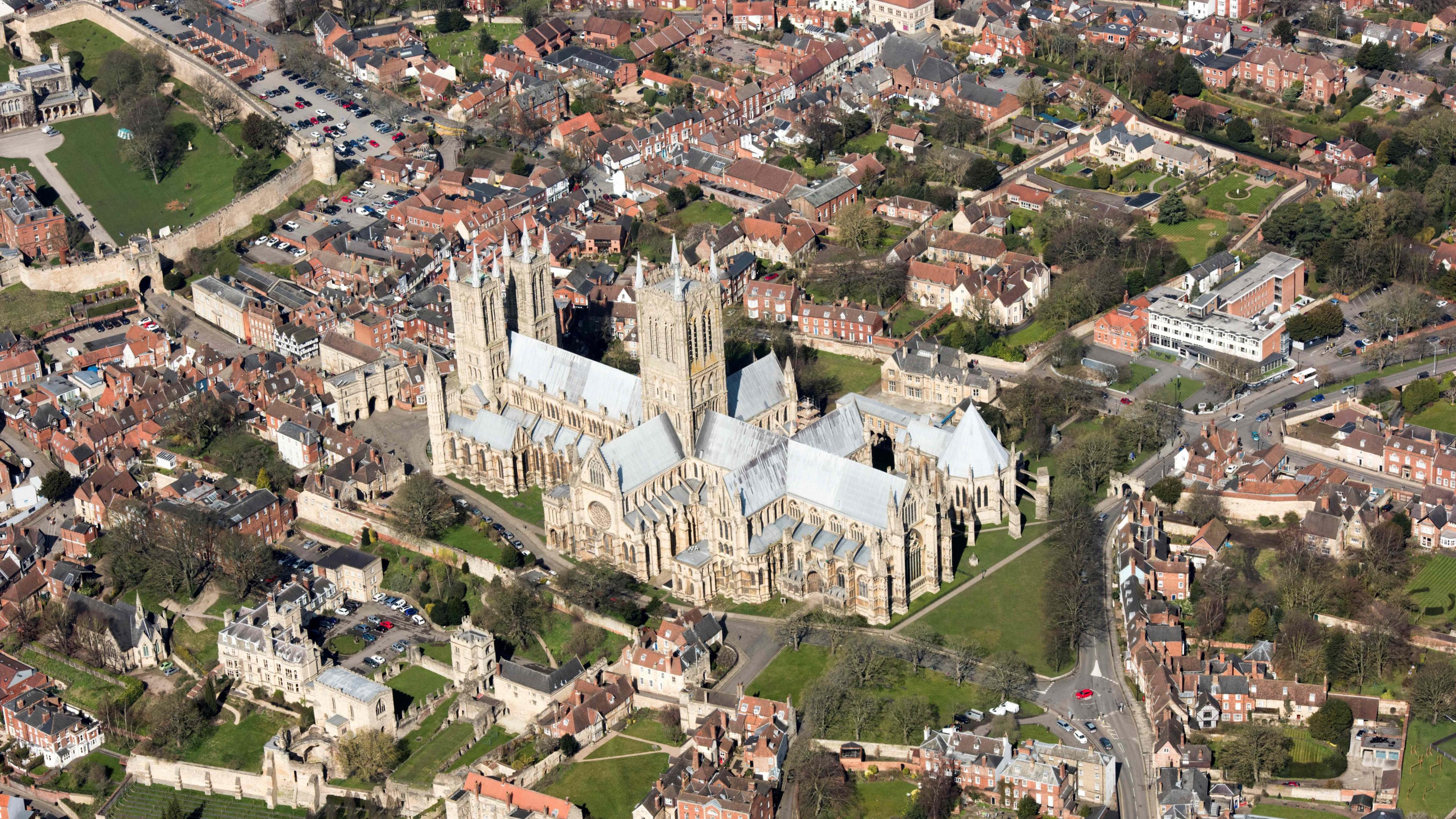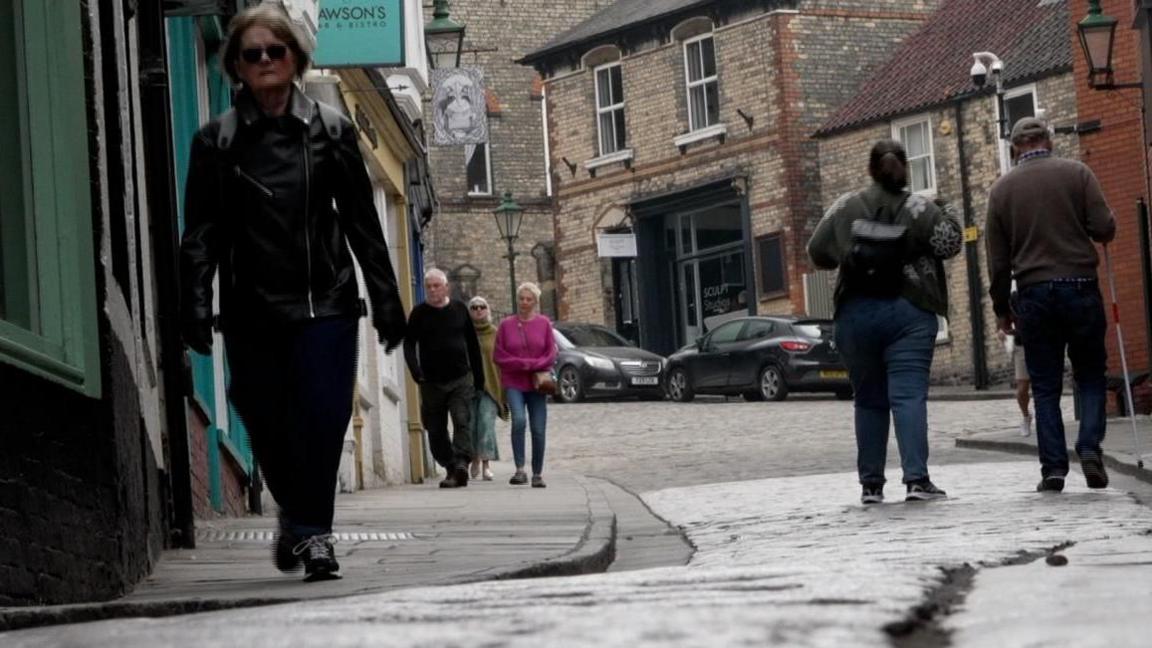Reform UK candidate challenged over right to stand

Dame Andrea Jenkyns is standing for mayor
- Published
A formal objection has been made over the Reform UK candidate in the race to be elected Greater Lincolnshire mayor.
Dame Andrea Jenkyns is the subject of a challenge over whether she is entitled to be on the electoral roll in the county, which is one of the criteria for being a candidate.
The BBC understands that a formal hearing will be held on Friday, less than a week before the election.
Reform UK said the complaint was "vexatious" and "politically motivated".
The election will be held on Thursday, 1 May.
Guidance by the Electoral Commission, external states that in order to be allowed to stand, candidates need to live or work in the area, own or rent land or property there, or be on the electoral roll.
Dame Andrea was added to the North Kesteven electoral roll at an address in Bassingham, near Lincoln, this month. Inclusion on the roll is based on where someone lives and can include second homes.
North Kesteven District Council said "a formal objection has been made" and "the statutory process is being followed".

Reform UK leader Nigel Farage says the challenge is "playing games with electoral law"
Dame Andrea moved to Lincolnshire when she was seven and went on to study at Grimsby College and the University of Lincoln.
She was a member of Lincolnshire County Council before she became the Conservative MP for Morley and Outwood, in West Yorkshire, in 2015.
She defected to Reform UK last year.
In an interview with Lincolnshire Live, external, she said she lived in Yorkshire with her son but intended to move to Lincolnshire full-time if she was elected.
Reform UK leader Nigel Farage said Ms Jenkyns was living "not full-time but part-time" in Lincolnshire and was "commuting back and forth" to care for her disabled child.
He said the challenge lodged against her was about "playing games with electoral law".
The BBC understands that the challenge came from an election agent for one of the other five candidates for mayor.
Councils can dismiss complaints without a hearing, but when a hearing is to be held it must happen within seven working days of the complaint being made.
Appeals against the outcome can be made within 14 days of a decision.
The outcome of the challenge will not impact the election itself, which is a separate legal process. But it could be used later to challenge the result via an application made to the Election Petitions Office.
Listen to highlights from Lincolnshire on BBC Sounds, watch the latest episode of Look North or tell us about a story you think we should be covering here, external.
Related topics
- Published7 April

- Published3 April

- Published13 April
